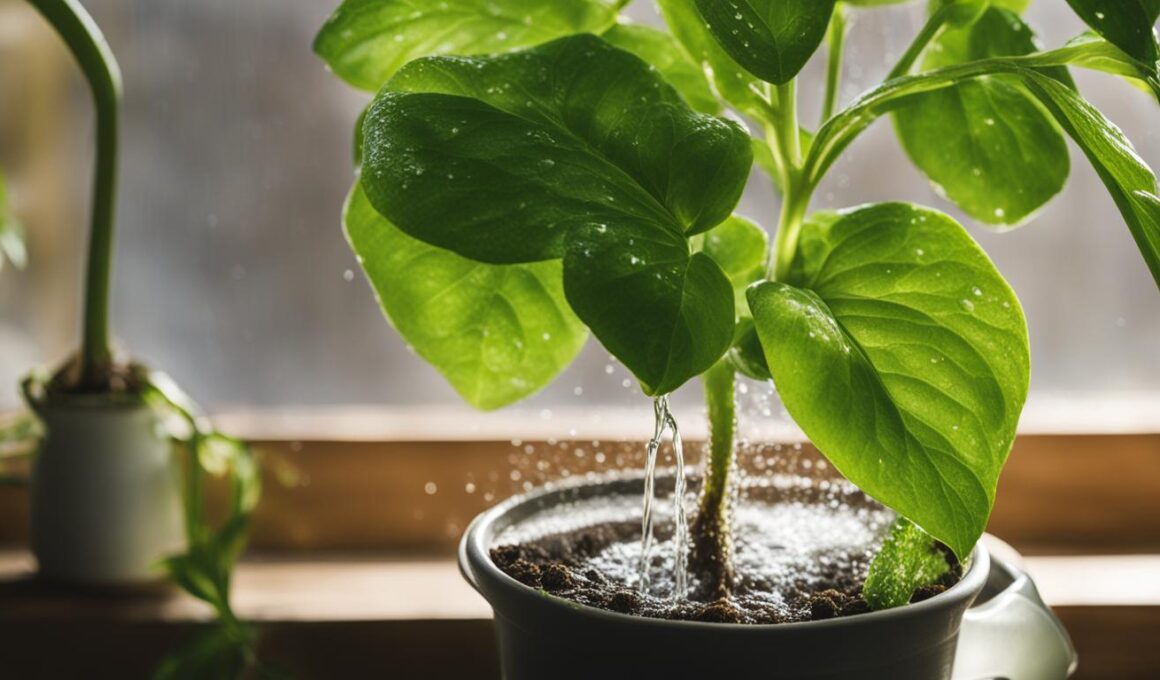Are you a gardener looking to give your plants a growth boost? You may have come across the idea of using sugar water for plants. In gardening folklore, it is believed that sugar water can enhance plant growth and health. However, is there any truth to this popular practice?
In this article, we will delve into the science behind sugar water for plants and examine whether it is a myth or a real growth booster. We will also explore the concerns raised by some gardening experts and provide you with the latest research findings.
Before jumping to conclusions, let’s understand the role of sugar in plants and how it affects their growth. By gaining insights into the concept of osmotic pressure and the impact of sugar water, you will be better equipped to make informed decisions for your plants.
So, if you’ve ever wondered whether sugar water can truly benefit your plants or if it’s just another gardening myth, keep reading to find out the truth!
Understanding Sugar and Osmotic Pressure in Plants
To grasp the impact of sugar water on plants, it is crucial to understand the role of sugar in plant biology. Plants produce glucose through photosynthesis, which is then converted to sucrose for easier transport and energy storage.
Sucrose serves as the primary form of sugar in plants, playing a vital role in various physiological processes. It acts as an energy source, fueling plant growth and development. Additionally, sucrose acts as a signaling molecule, coordinating plant responses to environmental cues.
Osmotic pressure, a property affected by the concentration of dissolved substances in water, plays a fundamental role in water movement within plant cells. Plant cells contain a higher concentration of solutes, including sugars, compared to their surrounding environment. This creates an osmotic gradient, causing water to enter the cells through osmosis.
Plants utilize osmotic pressure to draw water into their roots and distribute it throughout the plant. This essential mechanism ensures water availability for cellular processes such as nutrient uptake, metabolism, and growth. However, it’s important to maintain the right balance of solutes for optimal plant function.
The Role of Sugar in Osmotic Pressure
While sugar plays a critical role in osmotic pressure, excessive sugar concentrations can negatively affect plant health. High levels of sugar can disrupt the osmotic balance by increasing the solute concentration, drawing water out of the roots and ultimately leading to dehydration and plant death.
It’s worth noting that different sugars, such as glucose, fructose, and sucrose, have varying effects on osmotic pressure. Sucrose is the most common sugar found in plants and has a greater impact on osmotic pressure than glucose or fructose.
The Consequences of Disrupted Osmotic Pressure
When osmotic pressure is imbalanced, normal cellular processes are hindered, compromising overall plant health. Dehydration caused by excessive sugar concentrations can result in reduced nutrient uptake, stunted growth, and poor flowering or fruiting.
Furthermore, disrupted osmotic pressure can lead to wilting and tissue damage, rendering plants more susceptible to pests, diseases, and environmental stressors.
While sugar water may seem like a potentially beneficial solution for stimulating plant growth, it’s important to monitor the concentration and consider the potential consequences of disrupting the delicate osmotic balance within plants.
Can Sugar Water also be used as a growth booster for trees like Root Stimulator?
Yes, sugar water can help boost growth with root stimulator for trees. The sugar provides additional nutrients for the tree while the water helps it absorb these nutrients. This can result in improved growth and overall health for the tree when used in conjunction with a root stimulator.
Debunking Common Claims and Examining Research
When it comes to the use of sugar water for plants, there are various claims that need to be examined. Some believe that plants can absorb sugar through their roots, while others argue that sugar water can enhance flowering or improve crop yield. However, scientific research sheds light on the truth behind these claims.
Studies have shown that plants primarily produce and utilize their own sugars through photosynthesis. As a result, the absorption of external sugar, such as sugar water, is minimal. Plants have evolved to efficiently manage their sugar production and distribution, making it unlikely for them to heavily rely on external sources for sugar absorption.
Additionally, research has found little to no positive impact of sugar water on flowering or crop yield. While sugar is indeed important for plant growth, providing additional sugar through water does not significantly enhance the flowering process or boost crop productivity. Studies consistently demonstrate that sugar water does not lead to a substantial increase in growth or yield.
Therefore, it is important to separate fact from fiction when it comes to the use of sugar water for plants. Scientific evidence refutes the claims of sugar absorption through roots and highlights the limited influence of sugar water on flowering and crop yield. As a gardener or farmer, it is crucial to focus on other practices, such as proper nutrition, soil quality, and water management, to optimize plant growth and maximize crop productivity.









